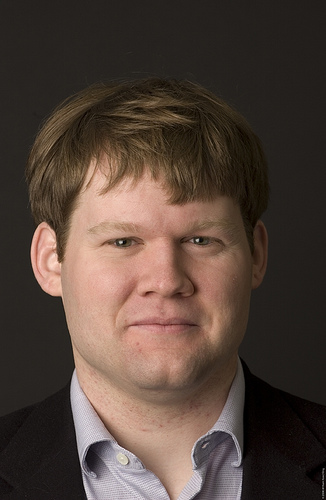 Ask your neighbors, and whether they know it or not, they probably follow John Stuart Mill as a guiding moral authority. The 19th-century British philosopher taught, "The only purpose for which power can be rightfully exercised over any member of a civilized community, against his will, is to prevent harm to others." This view has long since captured the popular Western imagination, shaping a whole range of moral debates, especially related to sexuality. Consider this typical argument for gay marriage offered byChicago Tribune columnist Eric Zorn:
Ask your neighbors, and whether they know it or not, they probably follow John Stuart Mill as a guiding moral authority. The 19th-century British philosopher taught, "The only purpose for which power can be rightfully exercised over any member of a civilized community, against his will, is to prevent harm to others." This view has long since captured the popular Western imagination, shaping a whole range of moral debates, especially related to sexuality. Consider this typical argument for gay marriage offered byChicago Tribune columnist Eric Zorn:
To me, immoral conduct is that which harms others, period. To you or your religious tradition, it may encompass much more, and that's fine. Advocates aren't asking you or your officiants to bless gay marriage, celebrate it or even, in your heart, to like it. They're asking you to recognize the line America tries to maintain between personal morality and the judgment of the law; between what's your business and what's none of your business.
This view makes perfect sense if we regard society as a collection of atomized individuals with no higher authority than themselves. But no one actually lives this way, at least consistently. As moral psychologist Jonathan Haidt points out in his recent book The Righteous Mind: Why Good People Are Divided by Politics and Religion, "Some actions are wrong even though they don't hurt anyone." Just ask your veteran neighbor what he thinks about burning the American flag. Or ask your pet-loving neighbor, whose dog has been killed by a passing car, if you can eat the meat. Yes, the revulsion you feel suggests that morality encompasses more than harm.
Even so, Christians living in Western cultures face an uphill climb in convincing our neighbors that the common good requires laws that limit personal freedom, especially in the realm of sexuality. So how might we begin to make such a case? I asked Tim Keller and Albert Mohler, so check out this wide-ranging discusion about right and wrong, human flourishing, personal liberation, and the ties that bind our society together.
A link to the video is below.
http://vimeo.com/46047078
















